
Barry Manilow is an American singer-songwriter, arranger, musician, producer and actor, with a career that has spanned more than 50 years. His hit recordings include "Could It Be Magic", "Mandy", "I Write the Songs", "Can't Smile Without You" and "Copacabana ".

Human Nature are an Australian vocal group, which formed in 1989, with Toby Allen, Phil Burton and brothers, Andrew and Mike Tierney. Originally they were a doo-wop group, the 4 Trax, while the members were schoolmates. After signing with Sony Music as Human Nature, they released their debut album, Telling Everybody, in 1996. Four of their albums have reached number one on the ARIA Albums Charts, Counting Down, Reach Out: The Motown Record, Dancing in the Street: The Songs of Motown II and Gimme Some Lovin': Jukebox Vol II. Three other albums reached number two, Get Ready, Jukebox, and Romance of the Jukebox. Their top 10 hits on the related ARIA Singles Chart are "Wishes", "Don't Say Goodbye", "Everytime You Cry", "Don't Cry", "Eternal Flame", "He Don't Love You" and "When You Say You Love Me". Three of their albums received multi-platinum certification from ARIA, while four others have received platinum, with a total shipment of over 1.6 million records in Australia, as of April 2011.
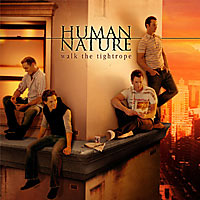
Walk the Tightrope is the fourth studio album by Australian boy band and pop vocal group Human Nature released on 26 April 2004. After a three-year absence since their greatest hits album, Here & Now: The Best of Human Nature, the group returned with a more adult-contemporary sound, presaging their future move to nostalgia type covers.
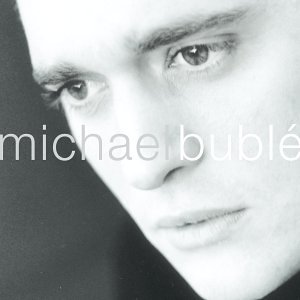
Michael Bublé is the self-titled third studio album and major label debut album released by Canadian-Italian crooner Michael Bublé. The album was released on February 11, 2003. The album spawned four singles: "How Can You Mend a Broken Heart", "Kissing a Fool", "Sway" and "Spider-Man Theme".
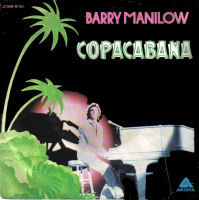
"Copacabana", also known as "Copacabana ", is a song recorded by Barry Manilow. Written by Manilow, Jack Feldman, and Bruce Sussman, it was released in 1980 as the third and final single from Manilow's fifth studio album, Even Now (1980).
"¿Quién será?" is a bolero-mambo written by Mexican composer Pablo Beltrán Ruiz. Beltrán recorded the song for the first time with his orchestra in 1953. Pedro Infante, for whom the song was written, recorded it in 1954.

Barry Manilow is the debut album by Barry Manilow. It was released as Barry Manilow in 1973, then re-mixed and re-released as Barry Manilow I in 1975.

Barry Manilow II is the second studio album by Barry Manilow released in 1974. It included the mega hit song "Mandy", as well as "It's a Miracle"; the cut "Sandra" was later recorded by Dusty Springfield. First issued by Bell Records, it was reissued after the company was reorganized into Arista Records.
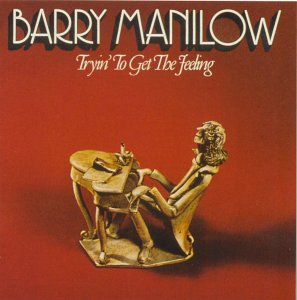
Tryin' to Get the Feeling is the third studio album by singer-songwriter Barry Manilow, released in 1975. It featured the title track, "Tryin' to Get the Feeling Again", with other hits including "New York City Rhythm", "Bandstand Boogie" and the chart topping "I Write the Songs". The album debuted on the Billboard Top 200 Chart on November 8, 1975, reaching number five in early 1976. The album was certified double platinum.
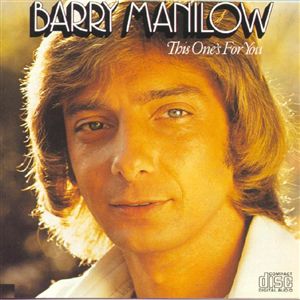
This One's For You is the fourth studio album by singer-songwriter Barry Manilow released in 1976. The album went 3x platinum, and yielded the hits "This One's for You", "Weekend in New England", the #1 "Looks Like We Made It" and the original version of "Daybreak." The album debuted on the Billboard Top 200 chart on August 21, 1976, reaching number six in 1977.

Barry Manilow Live is the fifth album by the singer-songwriter Barry Manilow. The album was released in 1977, and it scored quadruple platinum.
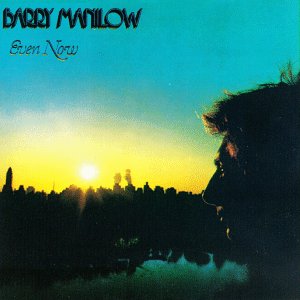
Even Now is the fifth studio album by singer-songwriter Barry Manilow. It was recorded at A&M Studios in Hollywood, California and released in 1978. The album reached triple platinum and spun off four hit singles in 1978 and early 1979: the title song, "Can't Smile Without You", "Copacabana" and "Somewhere in the Night". The 2006 CD rerelease replaces the album track version of "Copacabana" with the extended disco version.
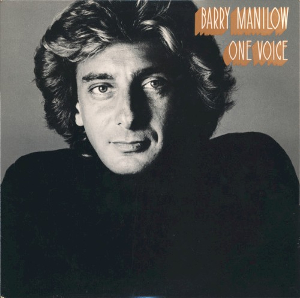
One Voice is the sixth studio album by singer/songwriter Barry Manilow, released in 1979. It was recorded at United Western Studios and Allen Zentz Recording in Hollywood. The album was a signature of a minor decline in Manilow's success. It reached 2x platinum, not 3x platinum, as his past six albums did. The album only contained one top ten hit, "Ships", which peaked at #9 on the Billboard Hot 100.

If I Should Love Again is the eighth studio album released by singer and songwriter Barry Manilow. The album was recorded at United Western Recording Studios in Los Angeles, California. Barry refers to it as "The most romantic album that I ever made", and remarks "I was so caught up in romance that I actually wrote music and lyrics to the title song while playing the piano facing the ocean, in a rented house on the beach in Atlantic City, New Jersey." The album was released in 1981, and it scored single platinum, as the previous album had.

2:00 AM Paradise Cafe is the fourteenth album by singer-songwriter Barry Manilow. The album was a radical departure from Manilow's previous work of highly polished pop. [Johnny Mercer]]'s widow, Ginger, entrusted Manilow with a cache of Mercer's lyrics that had never been set to music. Although Manilow used only Mercer's "When October Goes" for the project, he created an album of mostly original songs with a torchy, smokey jazz style. He recruited veteran jazz musicians Bill Mays, Gerry Mulligan, Shelly Manne, Mundell Lowe, and George Duvivier. Also enlisted for vocal duets were Mel Tormé and Sarah Vaughan. The entire album was rehearsed for three days, then recorded entirely live without overdubs at Westlake Studio 'C' in Los Angeles, California and released in 1984.
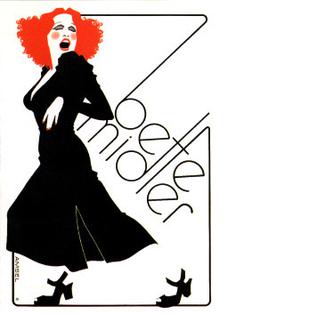
Bette Midler is the eponymous second studio album by American female vocalist Bette Midler, released in 1973 on the Atlantic Records label.
The album, produced by Arif Mardin and Barry Manilow, includes Midler's interpretations of Johnny Mercer and Hoagy Carmichael's "Skylark", Berthold Brecht and Kurt Weill's "Surabaya Johnny", Bob Dylan's "I Shall Be Released" and Glenn Miller's "In the Mood" as well as a Phil Spector medley.
Bette Midler reached #6 on the US albums chart and was later awarded a Gold Disc by the RIAA.
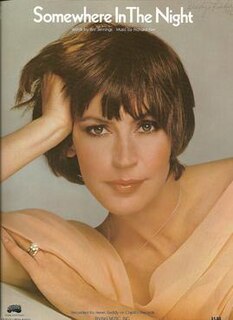
"Somewhere in the Night" is a ballad written by Richard Kerr and lyricist Will Jennings which was a US Top 20 hit for both Helen Reddy and Barry Manilow.

Get Ready is the seventh studio album by Australian pop vocal group Human Nature and third in their series Motown covers release. It was released on 17 November 2007.

Live at the Regent Theatre – 1 July 1999 is a live album by Australian singer John Farnham. The album was released in Australia on 30 August 1999, and peaked on the ARIA charts at No. 7.

The Christmas Album is the tenth studio album and first Christmas album by Australian pop vocal group Human Nature, released in November 2013.



















